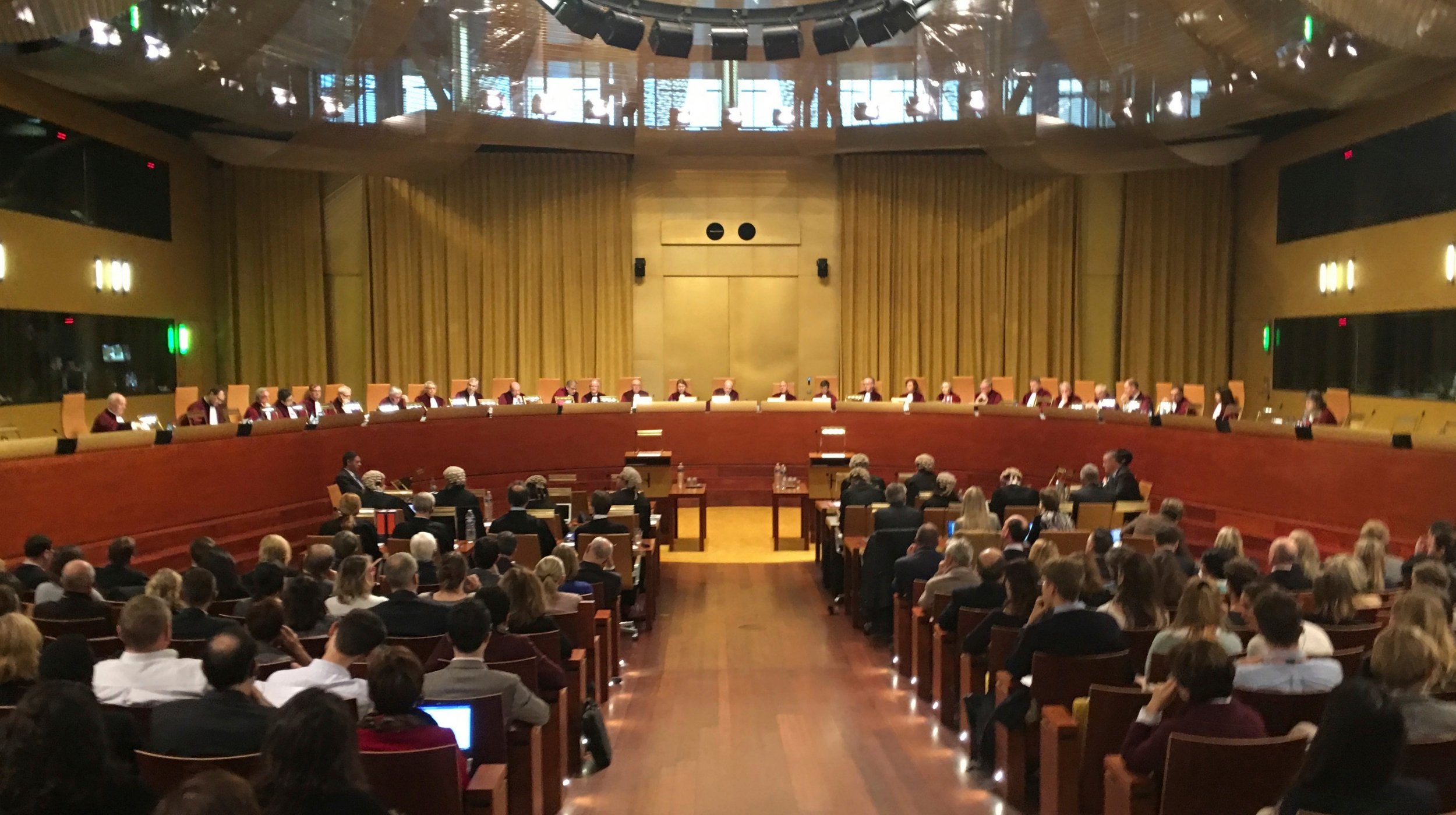Your support helps us to tell the story
From reproductive rights to climate change to Big Tech, The Independent is on the ground when the story is developing. Whether it's investigating the financials of Elon Musk's pro-Trump PAC or producing our latest documentary, 'The A Word', which shines a light on the American women fighting for reproductive rights, we know how important it is to parse out the facts from the messaging.
At such a critical moment in US history, we need reporters on the ground. Your donation allows us to keep sending journalists to speak to both sides of the story.
The Independent is trusted by Americans across the entire political spectrum. And unlike many other quality news outlets, we choose not to lock Americans out of our reporting and analysis with paywalls. We believe quality journalism should be available to everyone, paid for by those who can afford it.
Your support makes all the difference.The UK will resist EU demands for the European Court of Justice (ECJ) to have a say over UK trade after Brexit – putting the two sides on a collision course in upcoming talks.
Brussels wants the ECJ to have a role deciding disputes that arise in the course of trade – effectively giving it continued power over the UK.
The Times newspaper reports that Downing Street regards the court as “by very definition not a neutral arbiter”.
EU trade officials say they believe ECJ involvement is necessary to “ensure consistent interpretation of the agreement and secure the role of the [ECJ] in this respect”.
Some EU trade arrangements with its neighbours already include a role for the ECJ. Under the terms of the Ukraine association agreement, any issues considered that cross into EU law are put the ECJ to make a binding ruling.
By contrast, looser trade agreements like CETA, which the EU signed with Canada, do not rely on the Luxembourg supreme court.
Countries with close relationships with the EU like Norway and Iceland, which are members of the European Economic Area (EEA), are more strongly under the jurisdiction of the court.
The issue of the ECJ’s power over Britain joins others questions set to be dealt with by negotiations: like whether Britain signs up to a strong regulatory “level playingfield”, and the extent to which EU fishing fleets will have access to British waters.
Brexiteers regard the ECJ as a “foreign court”. The UK currently has a say in appointing its judges and makes EU law in common with other member states – but will lose all these powers next month after it leaves.
Commission officials told member state diplomats that ECJ would be joined by arbitration panels and a so-called joint committee to help judge whether either side had broken the rules.
Brexit trade talks are set to start next month after the UK and EU have drawn up their negotiating mandates.

Join our commenting forum
Join thought-provoking conversations, follow other Independent readers and see their replies
Comments